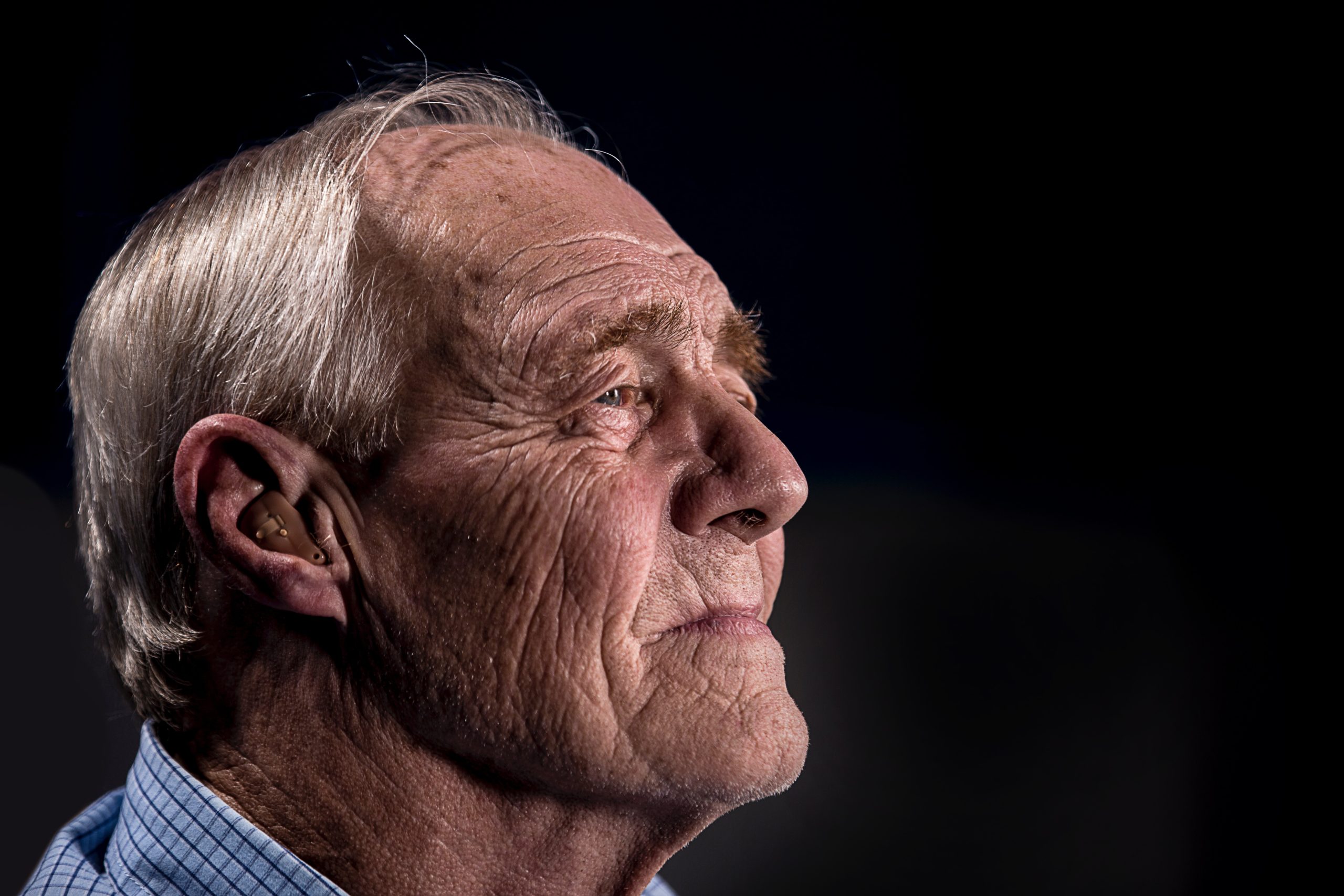Learn More About
Rehab Programs
Addiction, like many other behavioral and mental health disorders, knows few limitations. Age is certainly no barrier when it comes to substance use; both young and older individuals suffer from addiction. Although substance use has been known to affect the lives of younger people, it is important to realize that elderly adults also suffer from this disorder. This means senior rehabilitation centers are unquestionably necessary.
Seniors who struggle with substance use disorders should have access to professional treatment services at rehab centers that address their specific needs. After all, the needs of recovering senior adults are likely to differ from the needs of younger recovering individuals. So, finding addiction rehabilitation services that can help older adults throughout the recovery journey is essential.
The Importance of Senior Rehabilitation Centers for Older Adults
The truth of the matter is that everyone is different. So, substance dependence affects people in different ways. However, generally speaking, addiction impacts the elderly community differently than it affects younger individuals.
Also, there are other elements to consider, such as the mental and physical health of aging adults. The pre-existing health challenges and the ones that develop as a result of addiction can be drastically different for older individuals than for young people.
Since this is the case, it is best for older individuals to seek addiction treatment from senior rehabilitation centers. Those who are struggling with substance dependence often face tremendous difficulties as they attempt to end drug or alcohol use. So, it is imperative that individuals have support and guidance as they work to overcome addiction.
Prevalence of Addiction in Seniors
According to a 2019 report from the Substance Abuse and Mental Health Services Administration (SAMHSA), 1.7 million people aged 50 and older had suffered from co-occurring mental health and substance use disorders in the past year. Needless to say, the necessity for addiction treatment that also addresses the mental health needs of senior adults cannot be overemphasized.
Professional treatment programs can provide people with the assistance that they need in recovery. Through rehabilitation, those who are seeking to recover from addiction can find the motivation and resources necessary to successfully end substance use.
Senior rehabilitation centers can offer older adults an individualized strategy that works to meet the particular needs that seniors may have. Senior individuals may be able to benefit more from an age-specific treatment program than one that does not explicitly address their journeys.
What Causes Substance Abuse Among Senior Adults?

The causes of addiction in older adults may differ from the causes of substance abuse in younger people. Some of the reasons an adult may turn to alcohol or drug use may be much less common among the younger population. These are certainly important things for senior rehabilitation centers to consider.
Loneliness: Many seniors have lost spouses or lifelong friends. Some are living alone, without much interaction with others. Others are living in assisted living facilities or a nursing home, with few visits from loved ones. Also, countless older adults have limited contact with their families (children, grandchildren, etc.). As a result of these situations, many senior adults use alcohol or drugs in order to cope with intense feelings of loneliness.
Grief: Unfortunately, the older population commonly experiences loss. Some elderly individuals are widows and widowers; many have lost their children or siblings. The grief that comes with these losses can be overwhelming and extremely difficult to handle. It is, sadly, not uncommon for elderly individuals to engage in substance use as a coping mechanism.
Other life changes: Aging brings many changes to a person’s life. Elderly individuals often find themselves leading very different lives in their older years. Job loss or retirement, changes in living environments, financial difficulties, and physical health changes are all normal parts of getting older. However, it is not always easy to handle these shifts. Sometimes, these changes lead to substance use and abuse.
Prescription drug use: Doctors often prescribe medications for pain management and other conditions. Many older individuals use drugs such as benzodiazepines for treatment purposes. Unfortunately, this can sometimes be problematic. Some people may become dependent on their medications, which can sometimes lead to misuse.
Co-Occurring Disorders and Addiction in Aging Individuals
It is also worth noting that many people within the older community suffer from co-occurring mental health conditions along with addiction. Depression and anxiety disorders frequently accompany substance dependence in the lives of older individuals.
When mental illness and substance use disorders combine, the effects can be very serious, regardless of the person’s age. Cognitive health changes, including memory loss and other such struggles, should certainly be considered in treatment.
So, dual diagnosis treatment is of absolute importance and necessity as a part of the addiction treatment process. There are also many other components within the substance abuse treatment procedure.
Addiction Treatment for Older Adults

The addiction treatment process is not the same for everyone or at every treatment center. But, for the most part, treatment facilities offer a continuum of care that involves detoxification, inpatient care, outpatient care, and perhaps an aftercare service.
Having the right resources and services available is one of the most critical parts of a successful recovery. Senior adults who need help overcoming addiction should receive this assistance from a professional facilities that understands the needs of older individuals who suffer from substance abuse.
In essence, a successful recovery journey will produce an addiction-free life. It will also produce emotional, physical, and mental healing and freedom from substance dependence. Older adults who have been suffering from addiction will have specific needs that need to be addressed. Again, having personalized care is of the utmost importance.
Finding the right addiction recovery facilities for yourself or an older loved one may be challenging. But, it is best to seek help from a treatment center that offers a comprehensive and individualized approach. So, it is advisable to learn more about the levels of care involved in treatment.
Detoxification
As the first phase of most addiction treatment journeys, detoxification is helpful in ending physical substance dependence. It is the process of cleansing the body from the toxins of drugs and alcohol.
Also known as ‘detox’, detoxification is generally necessary as it offers a safe way to end substance use. Those who stop using alcohol or drugs after an extended period of use will experience withdrawal symptoms once. These symptoms can range from moderate to severe depending on the type of substance and length of use. But, some of the common symptoms of withdrawal may include the following:
- Tremors
- Headaches
- Changes in appetite
- Nausea and vomiting
- Changes in heart rate
- Anxiety, irritation, agitation
- Confusion, cognitive problems
- Changes in breathing patterns
Not only are withdrawal symptoms uncomfortable, but they can also be life-threatening if an individual does not receive help. So, it is often in a person’s best interest to undergo a professional detox throughout this process. Doing so will enable recovering individuals to have access to medical attention should it be necessary.
Detox also prepares those in recovery for the next step of the treatment process. Once individuals are free from physical substance use, they can begin to focus on emotional and mental healing. Individuals who are no longer actively using alcohol or drugs are likely to better concentrate on their recovery journeys.
Inpatient Treatment
Often, the next phase after detoxification is inpatient treatment. Some refer to this type of program as a residential treatment program. While in residential care, recovering individuals live at a rehab center. So, older adults who need intensive care can consider inpatient senior rehabilitation centers. These programs help create a healthy and necessary distance between struggling individuals and any harmful contributing factors at home.
Inpatient rehab is helpful for those who are suffering from severe addictions. It is best for individuals who are dealing with substance use disorder to seek treatment services that will address their every need.
While in residential care for substance abuse, recovering individuals can participate in therapy sessions and treatment approaches that address their individual struggles and challenges. This can be especially helpful for those who have been suffering from addiction for a while.
Addiction treatment programs that are inpatient can help people to work through their recovery while surrounded by others who are also moving toward recovery. Also, individuals can have 24/7 access to professional and clinical assistance.
Outpatient Treatment
While getting treatment from senior rehabilitation centers, individuals can transition into an outpatient program after inpatient treatment. This type of treatment does not require people to live at a rehab center. Instead, those in recovery can receive treatment while still living at home or in a sober living environment.
It is often best for people to go through residential treatment prior to entering an outpatient program because the latter is much less intensive. There are multiple types of outpatient treatment, including partial care programs and intensive outpatient programs (IOPs). These programs allow individuals to live outside of the rehab center while still getting the care they need throughout recovery.
Outpatient care for recovering individuals can help people to develop important skills and disciplines. For example, relapse prevention skills, interpersonal skills, and trigger recognition are all skills people can use while transitioning back into life outside of treatment.
Also, those who are enrolled in an outpatient program can continue to attend individual and group therapy sessions. They must also attend treatment for a set amount of hours every week. But, this treatment program option is certainly more flexible than inpatient treatment.
Many older adults may find that living at home is most comfortable, especially while going through the changes that come with recovery. Senior rehabilitation centers will certainly take this into consideration while determining the best treatment approach for older adults.
Contact North Jersey Recovery Center Today!

Here at North Jersey Recovery Center, we understand that each individual who suffers from addiction is different. Our staff is aware of the unique circumstances that may surround substance use among the older population. Using our knowledge of the treatment process and what it takes to ensure a successful recovery, we strive to offer the best care to each of our clients, regardless of their age.
If you’ve been suffering from addiction, you may be experiencing feelings of hopelessness and helplessness. It can be difficult to find support and guidance when it comes to addiction and rehab. It can be even more challenging for older adults to do so. But, it is important to avoid letting obstacles hinder you from getting the help that you need.
If you’ve been suffering from addiction, you may be experiencing feelings of hopelessness and helplessness. It can be difficult to find support and guidance when it comes to addiction and rehab. It can be even more challenging for older adults to do so. But, it is important to avoid letting obstacles hinder you from getting the help that you need.
On the other hand, if you have an older loved one who is struggling with substance use, please know that we are here to help. Our facilities is located in Fairlawn, New Jersey, and offers various treatment services to those who come to us for help.
Undoubtedly, you want your struggling family member or friend to receive comprehensive care. You desire to see your loved one living a healthy life, free from the bondage of alcoholism or drug misuse. But, finding senior rehabilitation centers may be proving quite difficult for you.
Allow North Jersey Recovery Center to Help You
Thankfully, we are dedicated to serving individuals who suffer from substance use disorder and we’re here to help your loved one! At North Jersey Recovery Center, we offer therapy services, residential treatment, partial care, intensive outpatient treatment, and more! With the help of our expertise, professionalism, and compassionate care, your loved one can find total healing from addiction.
You don’t have to fight the effects of addiction alone. Our staff is ready to help! To learn more about our services, simply contact us today. Let us help you or your family member to find the hope and freedom that come through recovery!

Reviewed for Medical & Clinical Accuracy by Laura Riley
Medical Reviewer
Laura comes to NJRC with 23 years of vast clinical experience in hospital, residential, outpatient, and community outreach settings where she has worked, supervised clinical teams, and volunteered. She has provided substance abuse and mental health counseling, clinical coordination, and advocacy to individuals, families and groups, and specializes in co-occurring disorders for both adults and adolescents.




